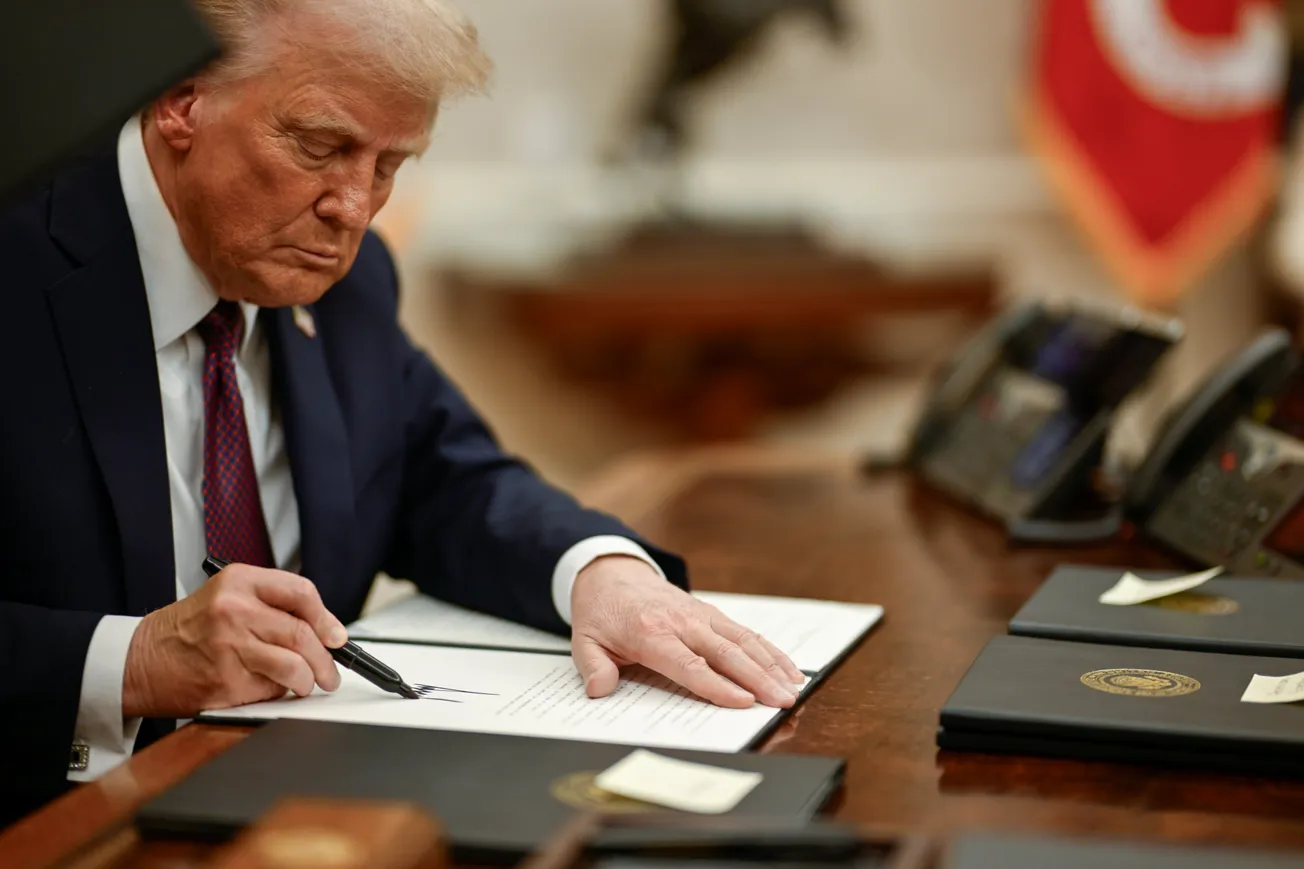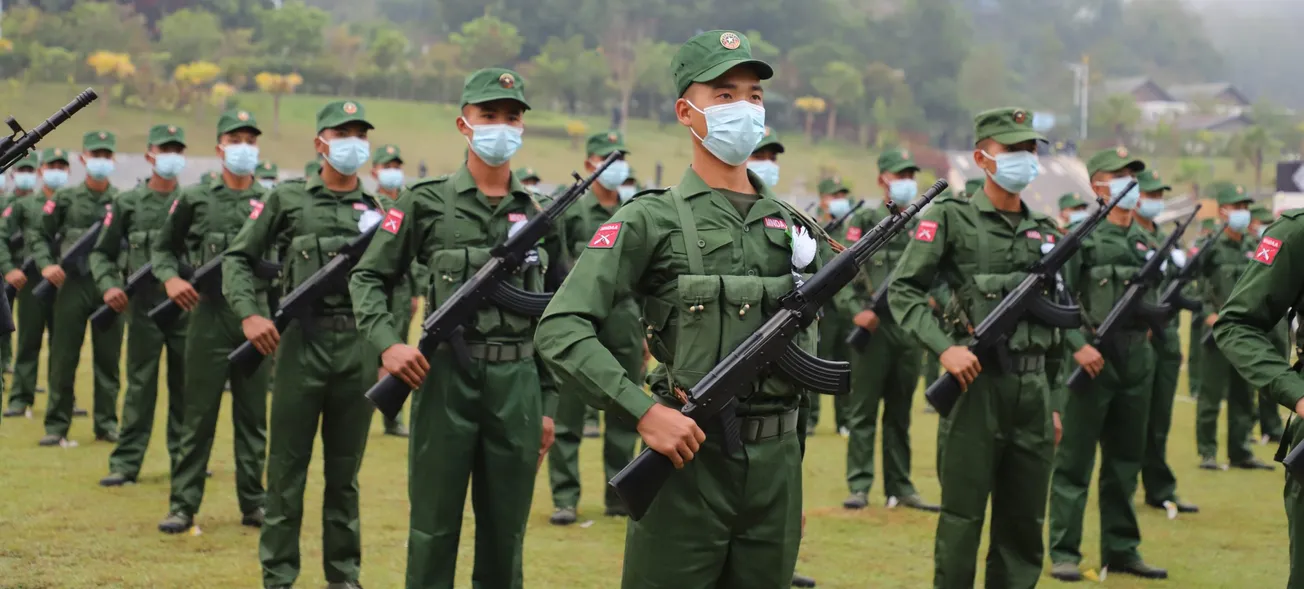Overview
Upon taking office for his second term on January 20, 2025, President Donald Trump swiftly enacted a series of executive orders that significantly impacted US foreign policy. These actions, reminiscent of his first term, aim to reshape America's global stance and relationships with other nations. The orders reflect Trump's "America First" ideology, emphasizing national interests, border security, and a recalibration of international commitments.
This briefing analyzes the key executive orders signed by President Trump that affect foreign policy, their potential impacts, and the reactions from countries directly affected by these decisions. It also examines the broader implications for US foreign relations and global dynamics.
Signed Executive Orders
Withdrawal from the World Health Organization (WHO)
President Trump ordered the United States to withdraw from the World Health Organization, citing concerns about the agency's management of the COVID-19 pandemic and its funding structure. This decision echoes a similar move from his first term and signals a significant shift in US involvement in global health initiatives.
Impact: This withdrawal could diminish US influence in global health policy and potentially hinder international cooperation on future health crises. It may also create a vacuum in WHO funding and leadership that other nations, such as China, might seek to fill.
Exit from the Paris Climate Agreement
Trump signed an executive order to withdraw the United States from the 2015 Paris climate accord. This action reverses the Biden administration's recommitment to the agreement and aligns with Trump's skepticism of climate change initiatives.
Impact: This decision could significantly impede global efforts to combat climate change. It may also isolate the US diplomatically on environmental issues and potentially cede other nations' leadership in clean energy technologies.
America First Foreign Policy Directive
An executive order titled "America First Policy Directive to the Secretary of State" instructs the State Department to align its operations with Trump's isolationist foreign policy approach. This order emphasizes prioritizing American interests in all diplomatic endeavors.
Impact: This directive could lead to a more transactional approach to diplomacy, potentially straining relationships with traditional allies and altering the US role in international organizations.
Suspension of Foreign Aid
Trump signed an executive order suspending all US foreign assistance programs for 90 days, pending reviews to determine their alignment with his policy goals. This action reflects Trump's skepticism of foreign aid's effectiveness and alignment with US interests.
Impact: This suspension could disrupt ongoing aid programs and humanitarian efforts worldwide. It may also diminish US soft power and influence in developing nations, potentially creating opportunities for rival powers to expand their influence.
Designation of Cartels as Foreign Terrorist Organizations
In a significant move, Trump signed an executive order allowing for the designation of certain international cartels as Foreign Terrorist Organizations (FTOs) or Specially Designated Global Terrorists, with a focus on cartels in Mexico.
Impact: This designation expands the tools available to combat transnational criminal organizations, allowing for more aggressive measures against cartels. It could significantly affect US-Mexico relations and alter the approach to tackling drug trafficking and border security.
Enhanced Border Security Measures
Trump declared a national emergency at the U.S.-Mexico border and ordered the deployment of military resources to support border enforcement. This action aims to address what Trump perceives as an "invasion" due to the migrant crisis.
Impact: These measures could strain diplomatic relations with Mexico and other Central American countries. They may also lead to increased tensions along the border and potentially affect trade and cross-border cooperation.
Restrictions on Visa Seekers
An executive order titled "Protecting The United States From Foreign Terrorists And Other National Security And Public Safety Threats" intensifies the vetting and screening of visa seekers, particularly those from regions deemed to pose security risks.
Impact: This order could significantly reduce immigration and tourism from certain countries, potentially affecting diplomatic relations and economic ties. It may also lead to retaliatory measures from affected nations.
Review of Trade Agreements
Trump ordered a review of various trade agreements, including those with China and the US-Mexico-Canada Agreement (USMCA). This action aligns with his campaign promises to renegotiate trade deals deemed unfavorable to the US.
Impact: This review could lead to renegotiations of significant trade agreements, potentially disrupting global supply chains and international trade patterns. It may also increase economic tensions with key trading partners, particularly China.
What They Are Saying
China
Reaction: China has expressed concern over the potential review of trade agreements and the proposed 60% tariff on Chinese imports. However, they have also indicated a willingness to engage in dialogue to maintain stable economic relations.
Analysis: The impact on US-China relations could be substantial. Increased trade tensions may lead to a new phase of economic competition and potentially affect cooperation on other global issues, such as climate change and regional security.
Mexico
Reaction: Mexican President Claudia Sheinbaum expressed concern over the border and trade issues, as well as the designation of cartels as terrorist organizations.
Analysis: The relationship between the US and Mexico will likely face significant challenges. The cartel designation and enhanced border security measures could increase tensions and potentially affect cooperation on issues such as trade and migration.
Cuba
Reaction: Cuba condemned Trump's decision to reinstate the country on the US list of state sponsors of terrorism, with President Miguel Díaz-Canel calling it "an act of arrogance and disregard for the truth."
Analysis: This action will likely reverse the limited normalization of relations achieved during the Biden administration. It may increase economic pressure on Cuba and potentially affect regional dynamics in Latin America.
Russia
Reaction: Russian President Vladimir Putin expressed willingness to rebuild ties with the new US administration, welcoming Trump's comments on restoring direct communication.
Analysis: The potential for improved U.S.-Russia relations could significantly alter global geopolitics. However, this rapprochement may strain relationships with European allies, particularly regarding the ongoing conflict in Ukraine.
Ukraine
Reaction: Ukrainian President Volodymyr Zelensky characterized Trump's inauguration as a day of "change" and "hope," praising Trump's "peace through strength" policy.
Analysis: Ukraine faces uncertainty regarding continued US support in its conflict with Russia. A potential shift in US policy could dramatically affect the balance of power in Eastern Europe and NATO's strategic posture.
European Union
Reaction: European leaders desire to strengthen transatlantic ties while acknowledging potential challenges. European Commission President Ursula von der Leyen stated that the EU looks forward to working closely with the US to tackle global challenges.
Analysis: The relationship between the US and EU may face strains, particularly regarding issues such as NATO funding, trade policies, and approaches to global challenges like climate change. However, European leaders desire to maintain strong ties despite potential policy divergences.
Canada
Reaction: Outgoing Canadian Prime Minister Justin Trudeau adopted a diplomatic stance, expressing Canada's eagerness to collaborate with the new administration while safeguarding Canadian interests.
Analysis: The US-Canada relationship may face challenges, particularly regarding trade issues and potential tariffs. However, the deep economic integration and shared borders necessitate ongoing cooperation, even amid policy disagreements.
Middle East
Reaction: Israeli Prime Minister Benjamin Netanyahu welcomed Trump's return, expressing confidence in completing "the neutralization of the Iran terror axis." Meanwhile, Syria's de facto leader, Ahmed al-Sharaa, expressed hope for improved relations with the US.
Analysis: Trump's return could significantly alter US policy in the Middle East, potentially leading to a more confrontational stance towards Iran and renewed support for Israel. This shift could reshape regional dynamics and affect ongoing conflicts and peace processes.
Final Takeaways
President Trump's executive orders on foreign policy signal a dramatic shift from the approach of the Biden administration. The return to an "America First" ideology, characterized by skepticism of international organizations, a focus on border security, and a transactional approach to diplomacy, will likely have far-reaching consequences for US foreign relations and global dynamics.
The withdrawal from international agreements like the Paris Climate Accord and the World Health Organization reflects a retreat from global leadership roles that the US has traditionally held. This could create opportunities for other powers, particularly China, to fill the vacuum in international forums and initiatives.
The suspension of foreign aid and the review of trade agreements indicate a more transactional approach to international relations, which could strain relationships with allies and partners. The designation of cartels as foreign terrorist organizations represents a significant shift in approach to transnational crime. It could have major implications for US-Mexico relations and regional security in Latin America.
Reactions from world leaders have been mixed, with some expressing concern over potential policy shifts and others seeing opportunities for renewed engagement. The coming months will be crucial in determining how these executive orders translate into concrete policies and how they reshape the global geopolitical landscape.
The Trump administration will face domestic and international challenges as it implements these orders. The extent to which these executive actions can be fully implemented may depend on legal challenges, congressional oversight, and the practical realities of international diplomacy and global interdependence.
In conclusion, President Trump's early executive orders on foreign policy significantly depart from recent US approaches to global engagement. Their full impact will unfold over time, but they signal a new era in American foreign policy that prioritizes national interests over global commitments and bilateral deals over multilateral cooperation.










